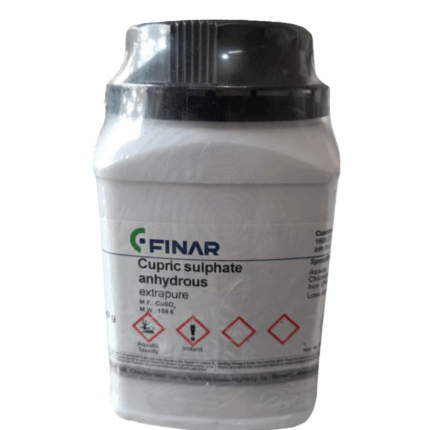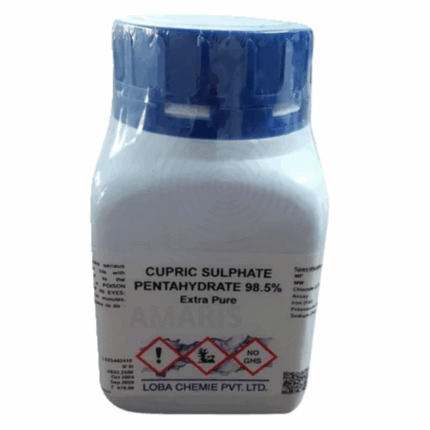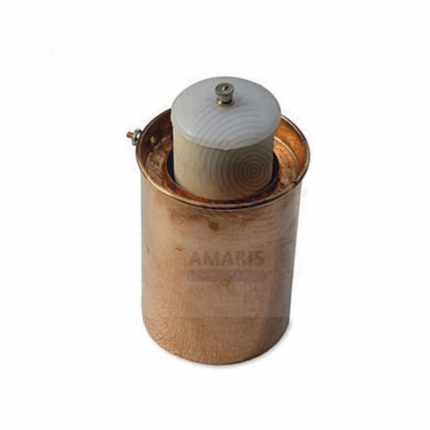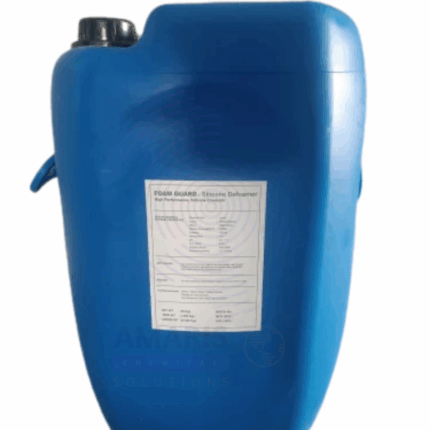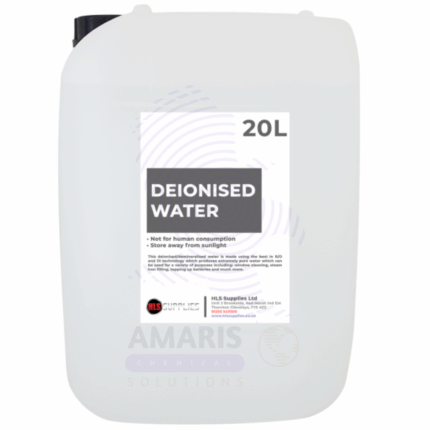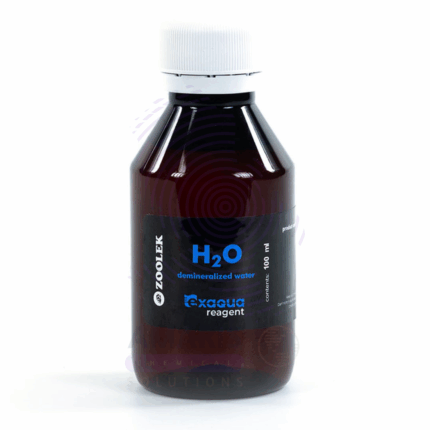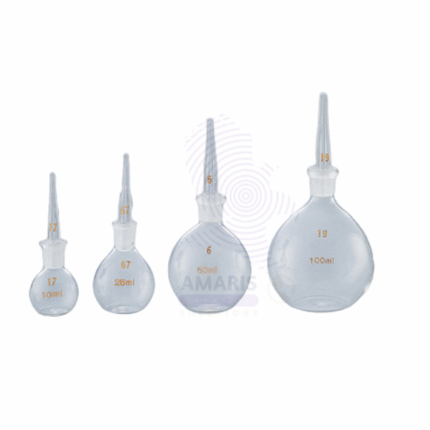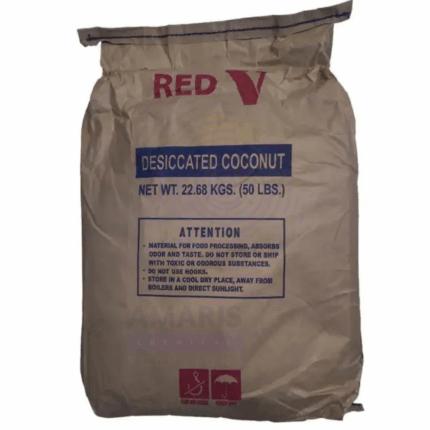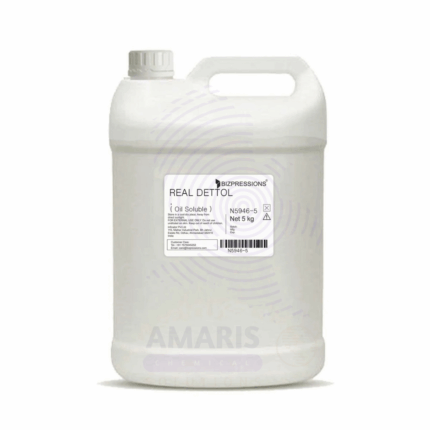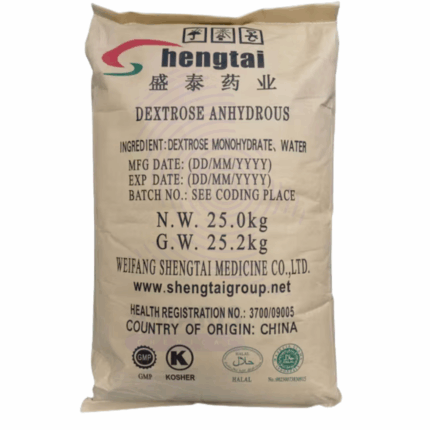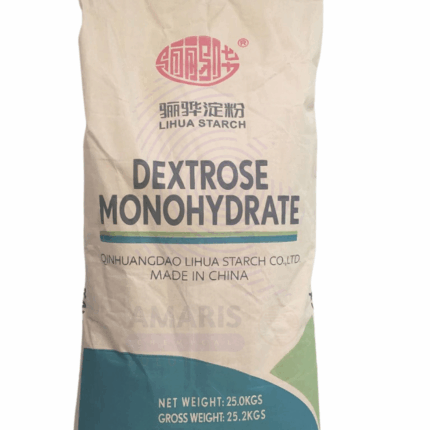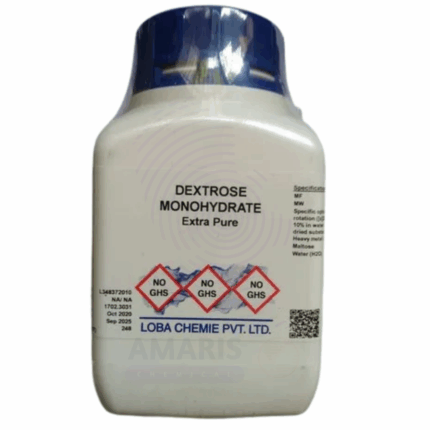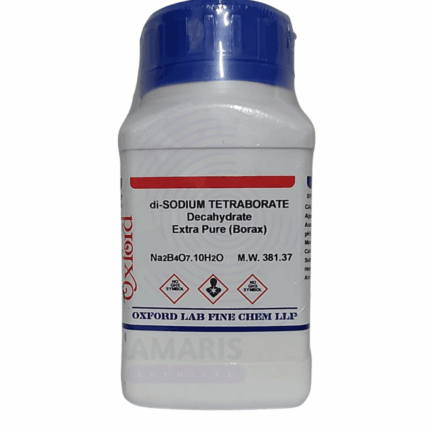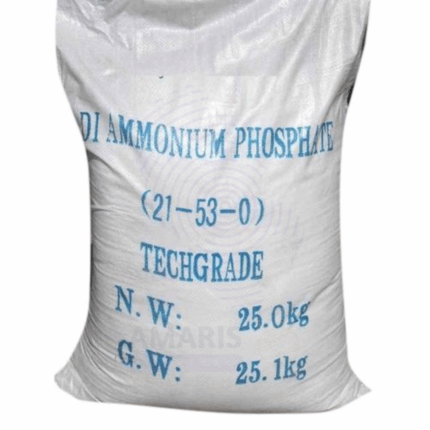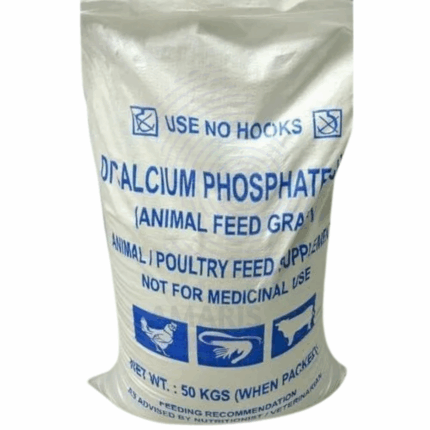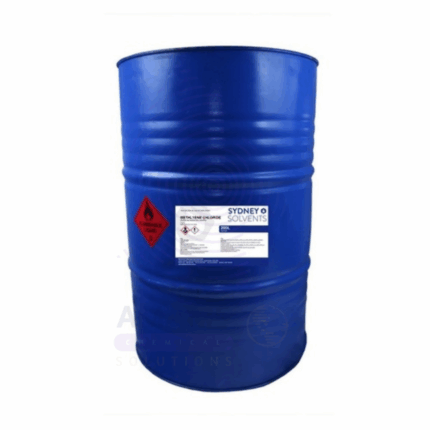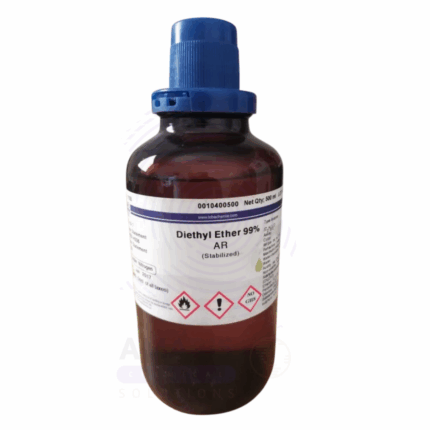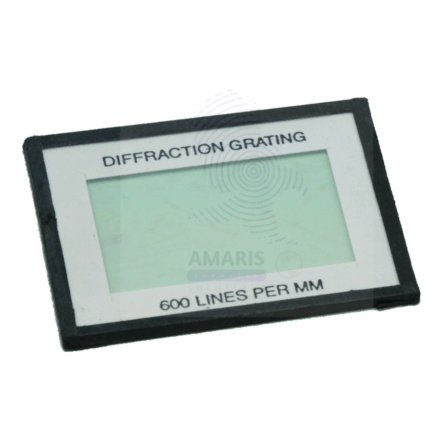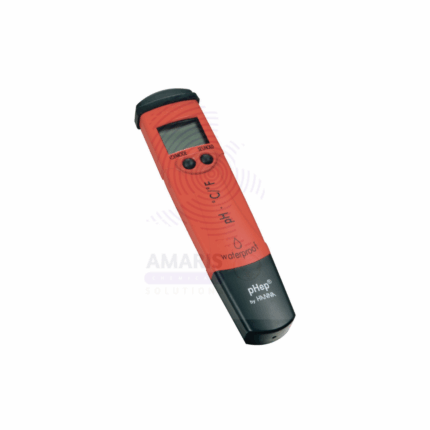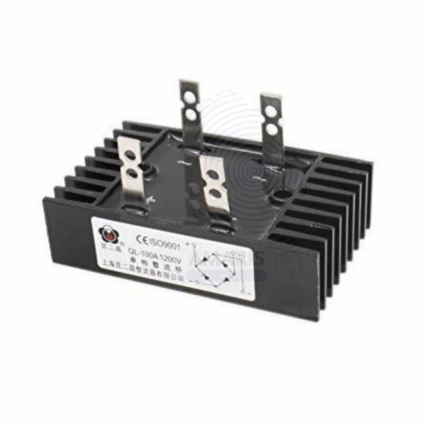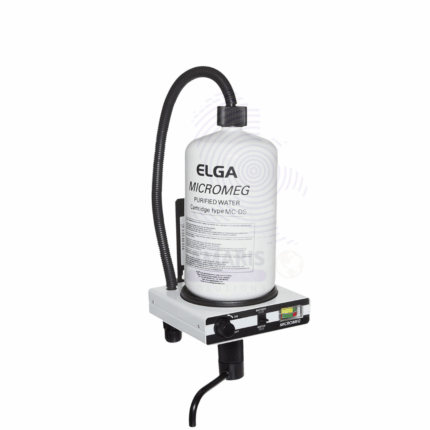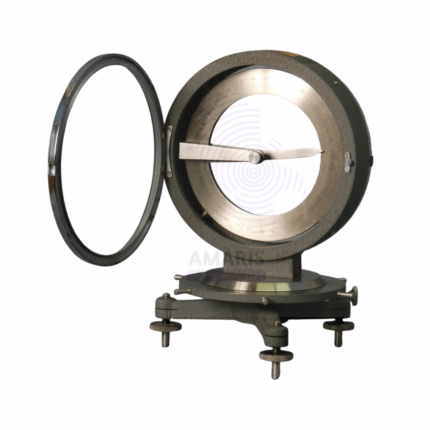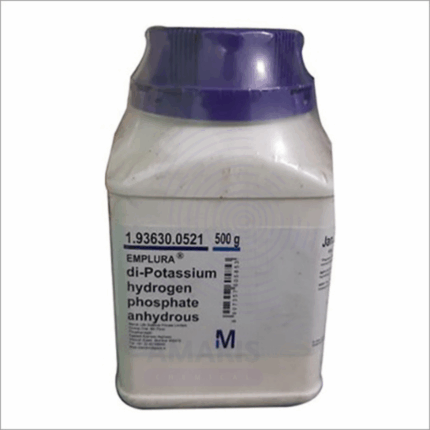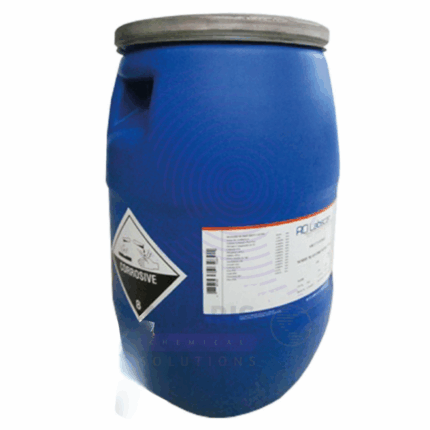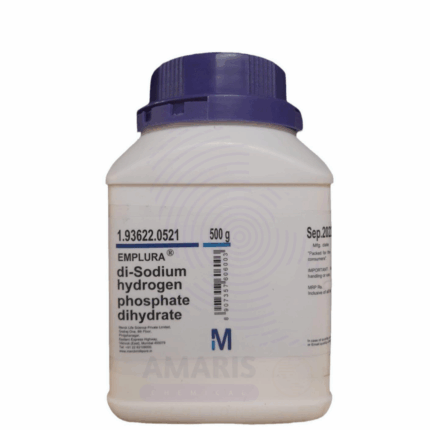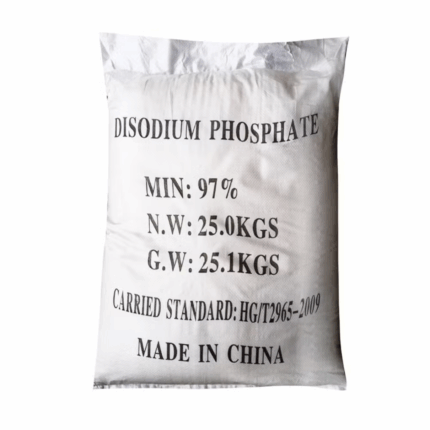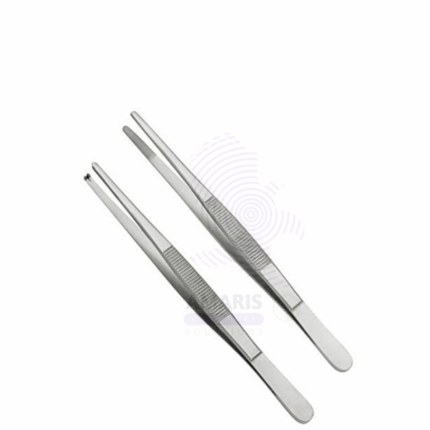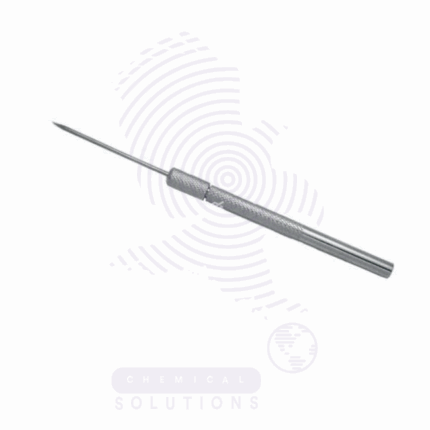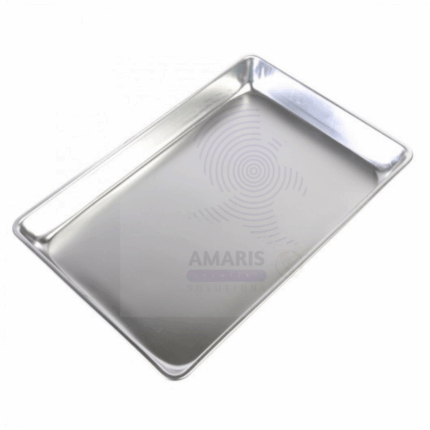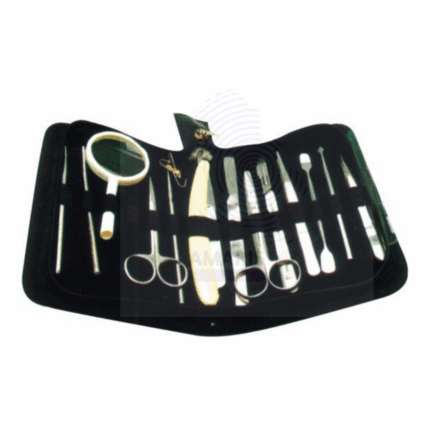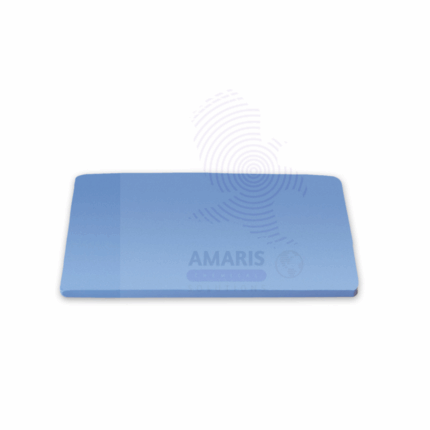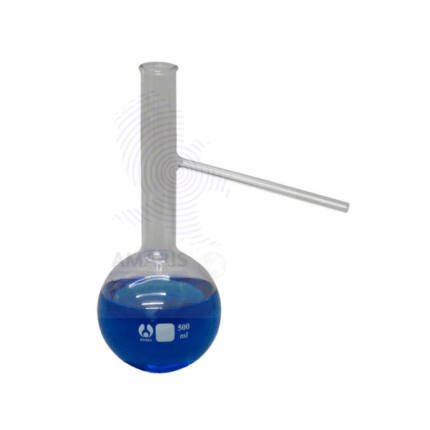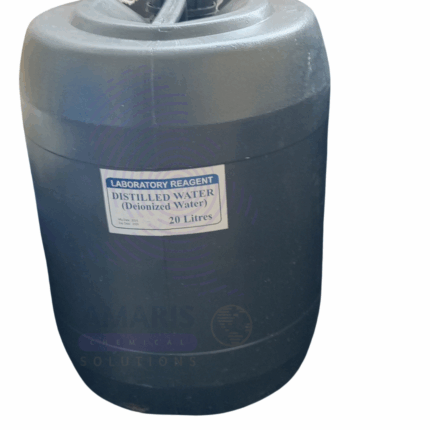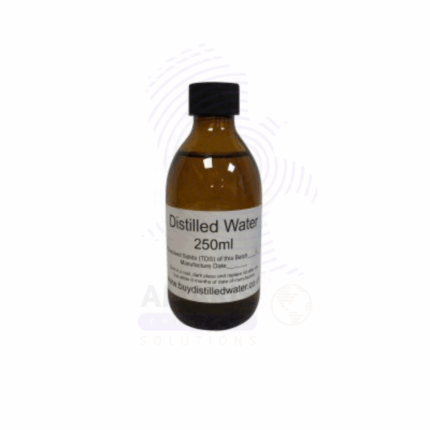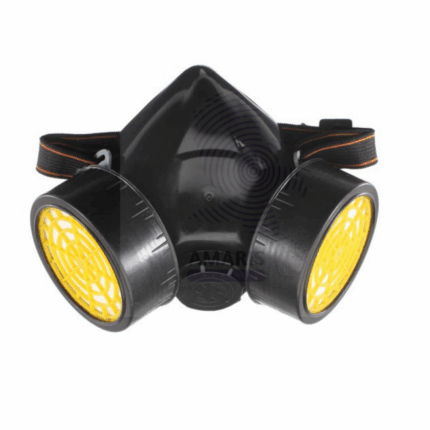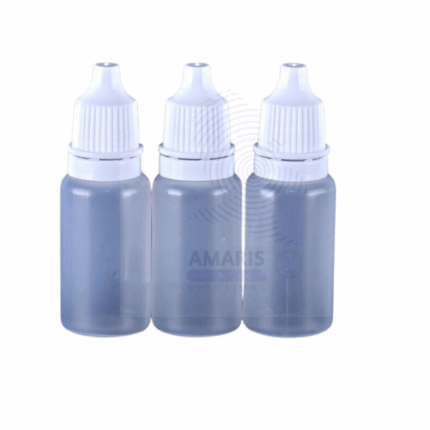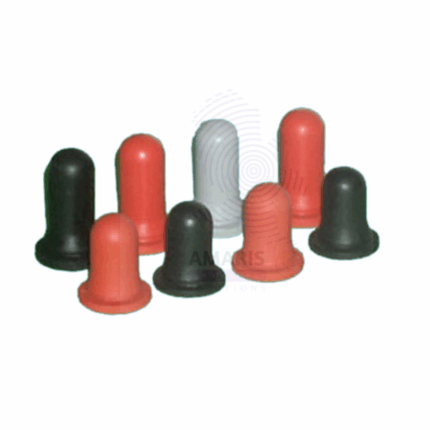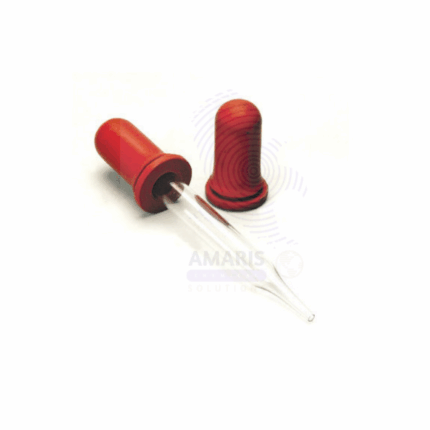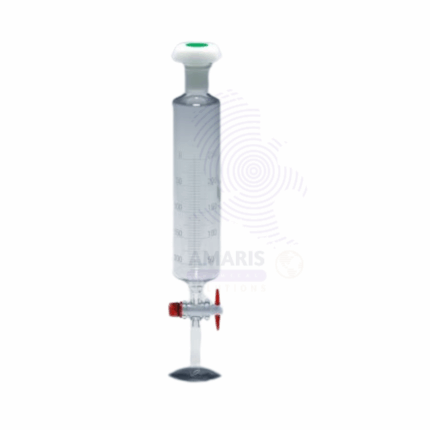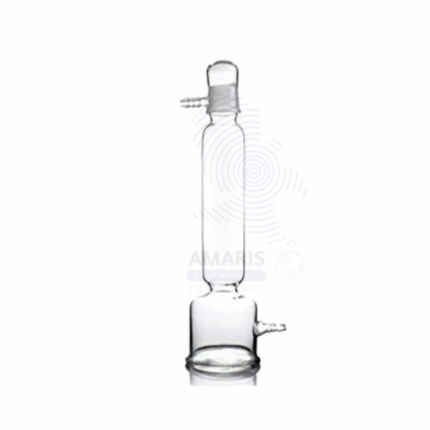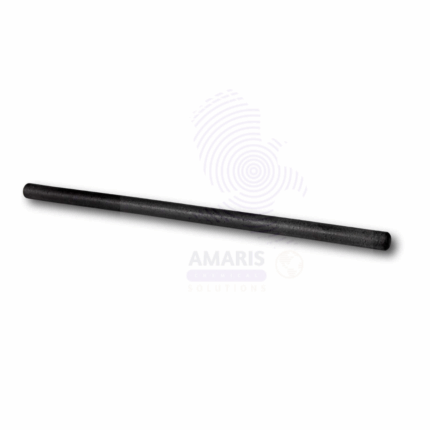
Cupric Sulphate Pentahydrate Extra Pure
Cupric Sulphate Pentahydrate Extra Pure is a vibrant blue crystalline compound widely used in laboratories for its high solubility and consistent copper ion content. It is essential in analytical chemistry for Fehling's and Benedict’s solutions, in electrochemistry for plating and battery experiments, and as a biological nutrient in microbiological media. The pentahydrate form offers ease of handling and precise formulation in aqueous solutions. This extra pure grade ensures exceptional purity, making it suitable for teaching labs, research applications, and controlled experimental procedures. Store in a sealed container away from heat and moisture to maintain its crystalline integrity.
Daniel cell
The Daniel Cell is a classic electrochemical cell consisting of zinc and copper electrodes immersed in their respective sulfate solutions and connected by a salt bridge. It generates electrical energy through redox reactions and is used primarily for educational and laboratory demonstrations in electrochemistry.
Defoamer
Defoamer is a high-performance, silicone-based antifoaming agent designed to eliminate and prevent foam formation in aqueous and non-aqueous systems. It is typically a milky-white or translucent emulsion composed of modified polydimethylsiloxane, hydrophobic silica, and proprietary surfactants or emulsifiers. Defoamer is known for its immediate foam knockdown, long-lasting suppression, and compatibility across diverse formulations. It is widely used in industrial processes, coatings, adhesives, water treatment, textiles, and more. It is effective at low concentrations, thermally stable, and resistant to shear and pH fluctuations.
Deionized Water
Deionized Water (DI Water), also known as demineralized water, is highly purified water that has had almost all of its mineral ions (such as sodium, calcium, iron, copper, chloride, and sulfate) removed through ion exchange, reverse osmosis, or other purification methods. It is a clear, colorless, odorless liquid with extremely low electrical conductivity and is considered chemically pure. Deionized water is used in applications where water purity is critical, including pharmaceuticals, electronics, cosmetics, laboratory use, and various industrial processes. Its lack of minerals makes it highly reactive with contaminants, which makes it both useful and sensitive in technical applications.
Deionized Water Extra Pure
Deionized Water Extra Pure is ultra-purified water that has had all mineral ions, such as sodium, calcium, iron, chloride, and sulfate, removed through ion-exchange processes. It is widely used in laboratories as a solvent, reagent diluent, and cleaning agent for sensitive instruments, ensuring no interference from dissolved ions in chemical analyses or reactions. This extra pure grade guarantees extremely low conductivity and minimal contaminants, making it ideal for analytical procedures, biological experiments, and preparation of standard solutions. It should be stored in clean, non-leaching containers to maintain its purity and prevent recontamination.
Deionizer Elga can
Deionizer Elga Can is a compact, high-efficiency water purification cartridge designed for laboratory and industrial use. It contains mixed-bed ion exchange resins that effectively remove dissolved ionic contaminants, producing high-purity deionized water. This unit is ideal for applications requiring ultrapure water free from minerals, salts, and other charged impurities. The Elga Can is designed for easy integration into existing water systems and is widely used in analytical, biochemical, and industrial processes that demand controlled water quality.
Deionizer with 4 elga cans
Deionizer with 4 Elga Cans is a high-capacity water purification system engineered for continuous production of deionized water in laboratory and industrial environments. The system uses four Elga mixed-bed ion exchange cartridges working in parallel or series to ensure extended operation, high throughput, and superior water quality. It removes dissolved ions and minerals effectively, producing ultra-low conductivity water ideal for sensitive analytical, biochemical, and production processes. The modular setup allows for easy replacement and maintenance, making it a reliable solution for facilities with high-purity water demands.
Density Bottle
The Density Bottle is a precision glassware device used for determining the density of liquids by measuring a known volume and mass. Typically made from high-quality borosilicate glass, the bottle features a tight-fitting stopper with a capillary hole to allow excess liquid to escape, ensuring volume accuracy. It is commonly used in laboratory settings for experiments in physical chemistry, materials science, and industrial quality control processes. The device provides a reliable method for comparing the density of various substances with high repeatability.
Desiccated Coconut
Desiccated Coconut is finely shredded, dried coconut meat derived from mature coconuts (Cocos nucifera). It is produced by removing the coconut water, then drying the white coconut kernel to reduce moisture content to less than 3%. The drying process preserves the natural flavor, aroma, and nutritional content while extending shelf life. Desiccated coconut is commonly available in various particle sizes and grades, suitable for culinary, bakery, confectionery, and food processing applications. It is valued for its rich texture, nutty flavor, and ability to add moisture and fat to food products.
Desiccators with Knob
Desiccators with Knob are specialized laboratory containers designed to preserve moisture-sensitive materials by providing a dry, airtight environment. Constructed from high-quality borosilicate glass or durable plastic, these desiccators feature a tightly sealed lid with a central knob for easy handling and secure closure. The knob allows convenient lifting and placement of the lid without compromising the internal vacuum or dry atmosphere. Commonly used with desiccant agents like silica gel, they are ideal for drying samples, storing hygroscopic chemicals, or preventing atmospheric contamination. Desiccators with knobs are indispensable in laboratory, pharmaceutical, and industrial settings for maintaining low-humidity conditions during experiments or storage.
Dettol Type Fragrance Oil
Dettol Type Fragrance Oil is a fresh, clean, and antiseptic-scented oil formulated to replicate the distinctive aroma of Dettol disinfectant. It offers a sharp, medicinal fragrance with herbal and citrus undertones, providing a sense of cleanliness and hygiene. This oil-soluble fragrance is widely used in household cleaning, disinfectant products, and personal care formulations that require a trusted and recognizable sanitizing scent. Its excellent stability and strong scent profile make it ideal for various industrial and commercial applications.
Dextrose Anhydrous BP Injectable
Dextrose Anhydrous BP Injectable is a sterile, highly purified crystalline form of glucose that serves as a critical energy source in intravenous therapy. It is widely used in parenteral nutrition, rehydration, and hypoglycemia management. The anhydrous form contains no water, allowing precise control of concentration in injectable solutions. Meeting British Pharmacopoeia (BP) standards, it ensures pharmaceutical-grade purity and sterility, suitable for direct injection or as a component in compounded IV fluids. It provides readily available carbohydrates metabolized to supply energy, regulate osmolarity, and maintain fluid-electrolyte balance in clinical care.
Dextrose Monohydrate
Dextrose Monohydrate is a crystalline form of glucose containing one molecule of water (monohydrate). It is a primary carbohydrate source widely used in pharmaceutical, food, and clinical nutrition applications. It provides readily available energy, serves as a sweetening agent, and acts as an osmotic agent in formulations. Dextrose Monohydrate meets pharmacopoeial standards (such as BP, USP) ensuring high purity, consistency, and safety for use in medical and food-grade products. Its solubility and stable crystalline form make it suitable for intravenous fluids, oral rehydration solutions, and food industry applications.
Dextrose Monohydrate Extra Pure
Dextrose Monohydrate Extra Pure is a high-purity crystalline form of glucose containing one molecule of water. It is widely used in laboratory settings as a carbon source in microbial culture media, fermentation processes, and biochemical assays. Its precise composition and consistent solubility make it ideal for preparing nutrient solutions, buffers, and test reagents. In research and educational labs, it supports various metabolic and enzymatic studies. This extra pure grade ensures minimal impurities, providing reliable results in sensitive analytical and biological applications. Store in a tightly sealed container in a cool, dry place to preserve its quality and prevent clumping.
Di-sodium Tetraborate Borax Extra Pure
Di-sodium Tetraborate Borax Extra Pure is a high-purity boron compound widely used in laboratory applications for its buffering, emulsifying, and fluxing properties. In analytical chemistry, it serves as a reagent in qualitative and quantitative analysis, particularly in flame tests and as a flux in the preparation of glass beads for spectroscopy. Its buffering capacity is valuable in maintaining pH stability in various solutions, while its detergent-like action supports cleaning and sample preparation. This extra pure grade ensures minimal contaminants, making it ideal for precision work in research, teaching, and industrial laboratories. Store in a cool, dry environment in a well-sealed container.
Diammonium Phosphate
Diammonium Phosphate (DAP) is a highly water-soluble, white crystalline fertilizer containing nitrogen and phosphorus. It is one of the most widely used phosphate fertilizers globally, providing a balanced source of nutrients essential for plant growth. DAP supplies ammonium nitrogen (NH₄⁺) and phosphate (PO₄³⁻), which promote vigorous root development, improve soil fertility, and enhance crop yield and quality. Besides agriculture, DAP serves important roles in food additives, fire retardants, and industrial applications. It’s favored for its high nutrient content, ease of application, and compatibility with other fertilizers and soil amendments.
Dicalcium Phosphate
Dicalcium Phosphate (DCP) is an inorganic compound commonly used as a dietary supplement, food additive, and a key raw material in pharmaceuticals and animal nutrition. It appears as a white crystalline powder or granules and provides a highly bioavailable source of calcium and phosphorus, essential minerals for bone health, metabolic functions, and overall growth. DCP is widely used in the feed industry, pharmaceutical manufacturing, food processing, and various industrial applications, appreciated for its purity, stability, and nutritional value.
Dichloromethane
Dichloromethane, also known as methylene chloride, is a volatile, colorless liquid with a sweet, chloroform-like odor. It is a chlorinated solvent widely used in industrial, pharmaceutical, and laboratory applications due to its excellent solvent properties, including high volatility, moderate polarity, and low boiling point (about 39.6°C). DCM is prized for its ability to dissolve a wide range of organic compounds, making it ideal for extraction, paint stripping, degreasing, and chemical processing. However, due to health and environmental concerns, its use is regulated and controlled in many countries.
Diethyl Ether Extra Pure
Diethyl Ether Extra Pure is a volatile, highly flammable solvent widely used in laboratory settings for extractions, recrystallization, and as a reaction medium in organic synthesis. Its low boiling point and high volatility make it ideal for evaporative processes and rapid solvent removal. In analytical labs, it is commonly employed for liquid-liquid extraction due to its excellent miscibility with a variety of organic compounds. This extra pure grade ensures minimal impurities, making it suitable for sensitive chemical reactions and research applications. Proper storage in a tightly sealed, cool, and well-ventilated area is essential to maintain stability and safety.
Digital pH Meter
A Digital pH Meter is a high-precision instrument designed to measure the acidity or alkalinity of liquid samples with accuracy and ease. Utilizing an electrode and electronic circuitry, it measures the voltage difference caused by hydrogen ion activity in a solution and converts it into a pH value displayed digitally. These devices are available in various formats—handheld, benchtop, waterproof, or pen-style—and often include advanced features such as automatic temperature compensation (ATC), backlit displays, auto-calibration, and data logging capabilities. Digital pH meters are vital tools across laboratories, environmental monitoring setups, industrial production lines, agricultural operations, food and beverage manufacturing, and water treatment facilities. They ensure reliable pH readings for maintaining chemical balance, compliance, and product quality in numerous applications.
Diode Mounted
Diode Mounted is a semiconductor component securely fixed onto a base or housing for stable operation in electronic and laboratory applications. These diodes are typically affixed to a heat sink, PCB, or specialized mount to facilitate thermal management, structural stability, and electrical connectivity. Mounted diodes are designed to ensure consistent current regulation, signal rectification, or light emission (in the case of LEDs) with enhanced performance and safety. These components are essential in laboratory test circuits, power supply systems, rectifier assemblies, and various instrumentation applications. Their mounted format makes them suitable for repeated testing, integration into complex systems, and controlled experimentation where component placement consistency is critical.
Dionizer Elga Can
The Dionizer Elga Can is a high-performance deionization cartridge used for producing ultra-pure water in laboratory and industrial water purification systems. Specifically designed for compatibility with ELGA water systems, this canister contains high-capacity ion exchange resins that effectively remove dissolved ionic contaminants such as salts, minerals, and metal ions from feedwater. The result is deionized water of high resistivity suitable for sensitive analytical and experimental procedures. Dionizer Elga Cans are crucial in maintaining water purity for applications involving spectroscopy, chromatography, microbiology, and molecular biology. These sealed, easy-to-replace cartridges ensure consistent water quality, system integrity, and regulatory compliance across various laboratory environments.
Dip Circle
A Dip Circle is a precision scientific instrument used for measuring the magnetic dip or inclination angle of the Earth’s magnetic field at a specific location. It consists of a magnetic needle or dip needle mounted on a graduated circular scale, which can rotate freely in the vertical plane. The instrument allows geologists, physicists, and surveyors to determine the angle between the horizontal plane and the Earth’s magnetic field lines, an important parameter in geomagnetic studies and navigation. Dip circles are commonly employed in academic research, mineral exploration, and educational demonstrations to analyze variations in Earth’s magnetism and assist in directional orientation.
Dip Needle
A Dip Needle is a finely balanced magnetic needle used to measure the magnetic dip or inclination angle of the Earth’s magnetic field. Mounted to pivot freely in a vertical plane, the needle aligns itself with the Earth’s magnetic field lines, enabling precise determination of the angle between the horizontal plane and magnetic field direction. Dip Needles are essential instruments in geophysics, navigation, and laboratory studies of magnetism. They provide crucial data for mapping magnetic variations, compass calibration, and educational demonstrations. Typically constructed with magnetized steel or alloy, dip needles are designed for sensitivity and durability in field and lab environments.
Dipotassium Hydrogen Phosphate Extra Pure
Dipotassium Hydrogen Phosphate Extra Pure is a high-purity inorganic salt commonly used in laboratories as a buffering agent, particularly in the preparation of phosphate buffer solutions for biochemical and analytical procedures. It plays a vital role in maintaining stable pH conditions in enzymatic and molecular biology experiments. Additionally, it serves as a source of potassium and phosphorus in various chemical reactions and culture media. This extra pure grade ensures excellent consistency and low levels of contaminants, making it ideal for high-precision lab work. It should be stored in a cool, dry place, tightly sealed to avoid moisture absorption.
Disodium Hydrogen Phosphate
Disodium Hydrogen Phosphate, also known as sodium phosphate dibasic, is an inorganic salt widely used as a buffering agent, emulsifier, and food additive. It appears as a white, odorless crystalline powder or granules that are highly soluble in water and alkaline in nature. It plays a crucial role in maintaining pH balance, stabilizing formulations, and supplying essential sodium and phosphate ions in various industries including food, pharmaceuticals, water treatment, and agriculture.
Disodium Hydrogen Phosphate Dihydrate Extra Pure
Disodium Hydrogen Phosphate Dihydrate Extra Pure is a laboratory-grade chemical widely utilized as a buffering agent and pH stabilizer in analytical chemistry, molecular biology, and biochemical research. It is commonly used in the preparation of phosphate buffer solutions, supporting the maintenance of optimal conditions for enzyme activity and cell culture. This dihydrate form ensures accurate hydration levels for reliable solution formulation. Its high purity makes it suitable for sensitive lab applications requiring minimal interference from impurities. The compound should be kept tightly sealed in a dry environment to preserve its integrity and reactivity.
Disodium Phosphate
Disodium Phosphate, also known as sodium phosphate dibasic, is an inorganic compound widely used for its buffering, emulsifying, and chelating properties. It commonly appears as a white, odorless crystalline powder or granules that are highly soluble in water and alkaline in nature. Disodium Phosphate plays a vital role in regulating pH, improving stability in formulations, and providing essential sodium and phosphate ions. It finds extensive use across food processing, pharmaceuticals, water treatment, agriculture, and industrial applications.
Dissecting Forceps
Dissecting Forceps are precision hand tools designed for grasping, holding, and manipulating tissues or small objects during dissection or surgical procedures. Typically made from high-quality stainless steel or surgical-grade metal, these forceps offer durability, corrosion resistance, and ease of sterilization. They come in various shapes and sizes, including straight or curved tips, serrated or smooth jaws, to suit different dissection needs in medical, veterinary, biological research, and educational settings. Their ergonomic design allows fine control and minimizes tissue damage during delicate operations.
Dissecting Needle
A Dissecting Needle is a fine, pointed instrument used in biological and medical dissections to tease apart tissues, separate layers, and manipulate small structures. Typically constructed from stainless steel or surgical-grade metal, the needle has a sharp tip mounted on a rigid handle, providing precision and control during delicate procedures. Dissecting needles are essential tools in anatomy labs, research facilities, and surgical settings for detailed tissue work, facilitating clearer visibility and accurate separation without causing unnecessary damage.
Dissecting scissors
Dissecting Pan with Wax is a specialized laboratory tool consisting of a shallow metal or plastic pan filled with a layer of soft, moldable wax used to securely position biological specimens during dissection. The wax surface allows specimens to be pinned or stabilized without damage, providing a firm and adjustable platform for precise anatomical work. This setup is commonly used in medical, veterinary, and educational laboratories to facilitate detailed examination, surgical practice, and teaching demonstrations. The pan is typically durable, easy to clean, and compatible with standard dissection instruments.
Dissecting Set (Fourteen Instruments)
A Dissecting Set (Fourteen Instruments) is a comprehensive collection of essential surgical and laboratory tools designed to facilitate detailed dissection, anatomical study, and specimen manipulation. Typically crafted from high-quality stainless steel or surgical-grade materials, this set includes a variety of instruments such as scalpels, forceps, scissors, probes, needles, and pins, each tailored for specific tasks. The set provides versatility and precision for medical, veterinary, biological research, and educational applications. Instruments are organized in a sturdy case or tray for convenient storage, sterilization, and transport, ensuring readiness for laboratory or surgical use.
Dissecting Soft Board
Dissecting Soft Board is a pliable, cushioned platform used in laboratories and educational settings to securely pin and stabilize biological specimens during dissection. Made from resilient, non-toxic materials such as foam, rubber, or silicone, the soft board provides an ideal surface that allows easy insertion and repositioning of pins without damaging the specimen or the work surface. It enhances precision and control, making dissections cleaner and more manageable. The board is lightweight, easy to clean, and reusable, commonly used in medical, veterinary, and research laboratories.
Distillation Apparatus
Distillation Apparatus is a laboratory setup designed for the separation, purification, and collection of liquid mixtures based on differences in boiling points. It typically consists of components such as a distillation flask, condenser, receiving flask, and connecting tubes, often made from chemically resistant borosilicate glass. This apparatus allows controlled heating, vaporization, condensation, and collection of volatile substances. Widely used in chemical laboratories, pharmaceutical manufacturing, food and beverage processing, and research, the distillation apparatus is essential for isolating pure liquids, removing impurities, and analyzing complex mixtures.
Distillation Flask with Side Arm
Distillation Flask with Side Arm is a specialized piece of laboratory glassware designed for use in distillation processes. Made from chemically resistant borosilicate glass, this flask features a round or pear-shaped body with a side arm outlet for vapor to pass through to the condenser. It serves as the container in which liquid mixtures are heated and vaporized, enabling separation based on boiling points. The side arm allows vapors to exit efficiently while minimizing the risk of leaks or contamination. This flask is essential in organic synthesis, chemical purification, and analytical laboratories, facilitating precise and safe distillation operations.
Distilled Water
Distilled Water is purified water that has been processed through distillation, a method involving evaporation and subsequent condensation to remove impurities, salts, minerals, and organic matter. This results in ultra-pure, clear, odorless, and tasteless water free of dissolved solids and contaminants. Distilled water is non-conductive, neutral in pH under ideal storage, and chemically stable. It is widely used across pharmaceutical, laboratory, medical, industrial, and consumer applications where high water purity is critical.
Distilled Water Extra Pure
Distilled Water Extra Pure is laboratory-grade water that has been thoroughly purified through distillation to remove all dissolved salts, minerals, organic compounds, and microbial contaminants. It serves as an essential solvent and diluent in chemical analyses, reagent preparation, and biological experiments where purity is critical. Its high level of cleanliness ensures minimal interference in sensitive laboratory procedures, making it ideal for use in analytical instrumentation, standard solution preparation, and microbiological testing.
Double Gas Mask
Double Gas Mask is a protective respiratory device designed to safeguard users from inhaling hazardous airborne substances, including toxic gases, vapors, fumes, and particulate matter. Featuring two filter cartridges or canisters, this mask provides enhanced filtration capacity and extended protection time. Constructed from durable, chemical-resistant materials such as rubber or silicone, the mask forms a tight seal around the face to prevent contaminant ingress. Equipped with adjustable straps and clear visors, Double Gas Masks are widely used in industrial, laboratory, military, and emergency response settings where exposure to harmful airborne chemicals or biological agents is a risk.
Dropper
Dropper is a small laboratory tool used to transfer precise volumes of liquids in drops. Typically composed of a glass or plastic tube with a squeezable rubber bulb at one end, the dropper allows controlled dispensing of liquids for experiments, titrations, or sample preparations. Its simple design enables easy handling and measurement of small quantities, making it indispensable in chemical, biological, pharmaceutical, and educational laboratories. Droppers are ideal for adding reagents dropwise, conducting qualitative tests, or transferring liquids without contamination.
Dropper Bottle Eyedrop
Dropper Bottle Eyedrop is a specialized small bottle equipped with an integrated dropper tip designed for the precise administration of liquid medications, particularly for ophthalmic use. These bottles are typically made from medical-grade plastic or glass and include a squeezable body with a built-in dropper nozzle for controlled drop dispensing. Designed to maintain sterility and prevent contamination, Dropper Bottle Eyedrops are widely used in pharmaceutical, clinical, and personal care settings for the safe delivery of eye medications, vitamins, or lubricants.
Dropper Teat
A Dropper Teat is a soft, flexible rubber or silicone component designed to fit onto a dropper bottle or pipette, facilitating controlled dispensing of liquids in drops. Commonly used in pharmaceutical, laboratory, and infant care applications, the teat provides a safe and precise way to transfer small amounts of liquid. Its pliable material allows easy squeezing to draw up and release fluids dropwise, ensuring accuracy and minimizing waste or contamination. Dropper teats are essential for eyedrops, medicines, feeding bottles, and various chemical dispensing needs.
Dropper with Teats
Dropper with Teats is a combined liquid dispensing tool consisting of a transparent glass or plastic tube fitted with a flexible rubber or silicone teat (bulb) at the top. This integrated design enables precise suction and controlled dropwise release of liquids, widely used in pharmaceutical, laboratory, and infant care settings. The teat provides comfortable squeezing to draw up liquid into the dropper tube and release it accurately in small volumes, making it ideal for delicate dosing, sample handling, and medicinal applications. These droppers are available in various sizes and materials to suit diverse fluid types and usage scenarios.
Dropping Funnel with Tap
Dropping Funnel with Tap is a precision laboratory glassware apparatus designed to add liquids dropwise or in a controlled flow to a reaction vessel or system. Typically made from chemically resistant borosilicate glass, this funnel features a conical body with a ground glass joint and an integrated stopcock (tap) at the bottom for precise flow regulation. It allows gradual addition of reactants during sensitive chemical processes, minimizing splashing, sudden reactions, or contamination. Widely used in organic synthesis, titrations, and controlled mixing procedures, it ensures safety and accuracy in laboratory operations.
Dynamic Trolley
Dynamic Trolley is a durable equipment designed for safe and efficient transportation of materials, instruments, or chemicals within laboratory and industrial settings. Built with sturdy frames and smooth wheels, it aids in moving heavy or bulky items, improving workflow and minimizing physical strain. Essential for organized handling and transport in labs, manufacturing plants, and warehouses.
Dynamo Working Model
Dynamo Working Model is a functional educational device designed to demonstrate the conversion of mechanical energy into electrical energy through electromagnetic induction. It includes components such as a rotating armature, coil windings, and magnets to simulate real-life dynamo operation. This model is widely used in physics and engineering laboratories, schools, and technical institutions for practical understanding of electricity generation and electromechanical energy conversion.
Ebonite Rod
Ebonite Rod is a solid, hard, and chemically resistant rod made from vulcanized natural rubber, commonly used in scientific and technical settings for its excellent electrical insulating properties. Due to the vulcanization process, ebonite becomes highly rigid and durable, exhibiting strong resistance to heat, chemicals, and mechanical wear. Its smooth, black surface is ideal for laboratory experiments involving static electricity where it can easily acquire and hold electric charge when rubbed with materials such as fur or wool. This makes the ebonite rod indispensable in physics demonstrations of electrostatics, including charging by friction and static force interactions. Besides educational use, ebonite rods are also utilized in manufacturing industries for producing components that require robust insulating materials. The rod’s chemical resistance ensures longevity even in harsh laboratory environments, making it a reliable tool for repeated use. Its non-conductive nature allows it to act as a barrier preventing electrical current flow, thus providing safety and control in experimental setups.


 Preservatives(food)
Preservatives(food) Flavor Enhancers
Flavor Enhancers Acidulants
Acidulants Sweeteners
Sweeteners Antioxidants
Antioxidants Colorants(food)
Colorants(food) Nutraceutical Ingredients (food)
Nutraceutical Ingredients (food) Nutrient Supplements
Nutrient Supplements Emulsifiers
Emulsifiers
 Collectors
Collectors Dust Suppressants
Dust Suppressants Explosives and Blasting Agents
Explosives and Blasting Agents Flocculants and Coagulants
Flocculants and Coagulants Frothers
Frothers Leaching Agents
Leaching Agents pH Modifiers
pH Modifiers Precious Metal Extraction Agents
Precious Metal Extraction Agents
 Antioxidants(plastic)
Antioxidants(plastic) Colorants (Pigments, Dyes)
Colorants (Pigments, Dyes) Fillers and Reinforcements
Fillers and Reinforcements Flame Retardants
Flame Retardants Monomers
Monomers Plasticizers
Plasticizers Polymerization Initiators
Polymerization Initiators Stabilizers (UV, Heat)
Stabilizers (UV, Heat)
 Antifoaming Agents
Antifoaming Agents Chelating Agents
Chelating Agents Coagulants and Flocculants
Coagulants and Flocculants Corrosion Inhibitors
Corrosion Inhibitors Disinfectants and Biocides
Disinfectants and Biocides Oxidizing Agents
Oxidizing Agents pH Adjusters
pH Adjusters Scale Inhibitors( water)
Scale Inhibitors( water)
 Antioxidants(cosmetic)
Antioxidants(cosmetic) Emollients
Emollients Fragrances and Essential Oils
Fragrances and Essential Oils Humectants
Humectants Preservatives
Preservatives Surfactants(cosmetic)
Surfactants(cosmetic) Thickeners
Thickeners UV Filters
UV Filters
 Fertilizers
Fertilizers Soil Conditioners
Soil Conditioners Plant Growth Regulators
Plant Growth Regulators Animal Feed Additives
Animal Feed Additives Biostimulants
Biostimulants Pesticides (Herbicides, Insecticides, Fungicides)
Pesticides (Herbicides, Insecticides, Fungicides)
 Active Pharmaceutical Ingredients (APIs)
Active Pharmaceutical Ingredients (APIs) Excipients
Excipients Solvents(pharmaceutical)
Solvents(pharmaceutical) Antibiotics
Antibiotics Antiseptics and Disinfectants
Antiseptics and Disinfectants Vaccine Adjuvants
Vaccine Adjuvants Nutraceutical Ingredients (pharmaceutical)
Nutraceutical Ingredients (pharmaceutical) Analgesics & Antipyretics
Analgesics & Antipyretics
 Analytical Reagents
Analytical Reagents Solvents(lab)
Solvents(lab) Chromatography Chemicals
Chromatography Chemicals Spectroscopy Reagents
Spectroscopy Reagents microbiology-and-cell-culture-reagents
microbiology-and-cell-culture-reagents Molecular Biology Reagents
Molecular Biology Reagents Biochemical Reagents
Biochemical Reagents Inorganic and Organic Standards
Inorganic and Organic Standards Laboratory Safety Chemicals
Laboratory Safety Chemicals Specialty Laboratory Chemicals(Special Laboratory Equipment)
Specialty Laboratory Chemicals(Special Laboratory Equipment)
 Demulsifiers
Demulsifiers Hydraulic Fracturing Fluids
Hydraulic Fracturing Fluids Scale Inhibitors(oil)
Scale Inhibitors(oil) Surfactants(oil)
Surfactants(oil) Drilling Fluids
Drilling Fluids
 Dyes and Pigments
Dyes and Pigments Bleaching Agents
Bleaching Agents Softening Agents
Softening Agents Finishing Agents
Finishing Agents Antistatic Agents
Antistatic Agents
 Admixtures
Admixtures Waterproofing Agents
Waterproofing Agents Sealants and Adhesives
Sealants and Adhesives Curing Compounds
Curing Compounds Concrete Repair Chemicals
Concrete Repair Chemicals Anti-Corrosion Coatings
Anti-Corrosion Coatings
 Surfactants(cleaning)
Surfactants(cleaning) Builders
Builders Enzymes
Enzymes Solvents (Cleaning)
Solvents (Cleaning) Fragrances
Fragrances
 Electronic Chemicals
Electronic Chemicals Catalysts
Catalysts Lubricants
Lubricants Photographic Chemicals
Photographic Chemicals Refrigerants
Refrigerants Automotive chemicals
Automotive chemicals Pyrotechnic Chemicals
Pyrotechnic Chemicals
 Biodegradable Surfactants
Biodegradable Surfactants Bio-based Solvents
Bio-based Solvents Renewable Polymers
Renewable Polymers Carbon Capture Chemicals
Carbon Capture Chemicals Wastewater Treatment Chemicals
Wastewater Treatment Chemicals
 Pigments
Pigments Solvents(paint)
Solvents(paint) Specialty Coatings
Specialty Coatings Binders/Resins
Binders/Resins Additives
Additives Driers
Driers Anti-Corrosion Agents
Anti-Corrosion Agents Functional Coatings
Functional Coatings Application-Specific Coatings
Application-Specific Coatings
 Fresh Herbs
Fresh Herbs Ground Spices
Ground Spices Whole Spices
Whole Spices Spice Blends
Spice Blends Dried Herbs
Dried Herbs
 Leavening Agents
Leavening Agents Dough Conditioners
Dough Conditioners Flour Treatments
Flour Treatments Fat Replacers
Fat Replacers Decoratives
Decoratives Preservatives(baking)
Preservatives(baking)
 Plasticizers & Softeners
Plasticizers & Softeners Reinforcing Agents
Reinforcing Agents Adhesion Promoters
Adhesion Promoters Vulcanizing Agents
Vulcanizing Agents Antidegradants
Antidegradants Blowing Agents
Blowing Agents Fillers & Extenders
Fillers & Extenders Accelerators & Retarders
Accelerators & Retarders

















